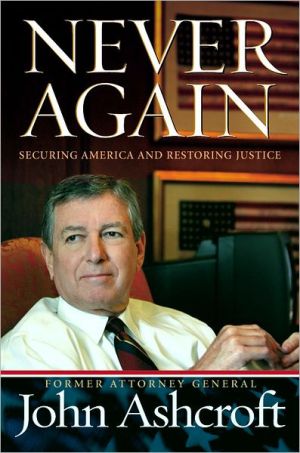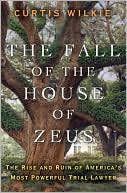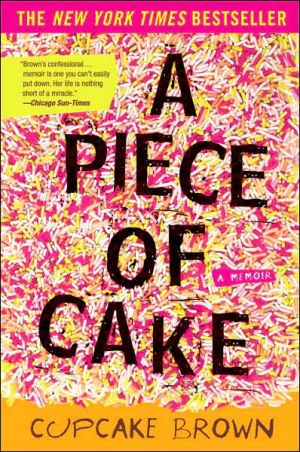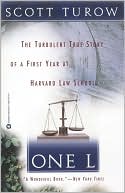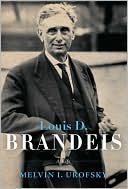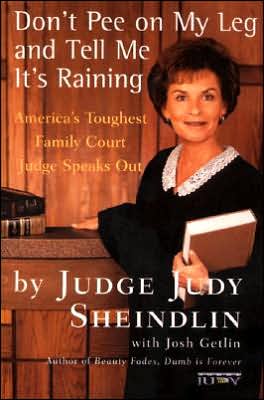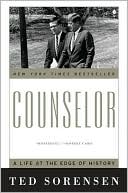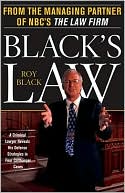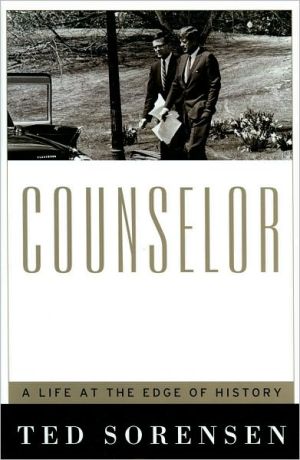Never Again: Securing America and Restoring Justice
In this provocative book, the most controversial attorney general in U.S. history tells the untold story behind the war on terror in post-9/11 America. In his own words, John Ashcroft shares his unique perspective on the dangers to and within America from outside forces and explains what he did to repair the serious breaches in the country's security.
Search in google:
In this provocative book, the most controversial attorney general in U.S. history tells the untold story behind the war on terror in post-9/11 America. In his own words, John Ashcroft shares his unique perspective on the dangers to and within America from outside forces and explains what he did to repair the serious breaches in the country's security.
\ \ Never Again\ \ \ \ By John Ashcroft\ \ \ Center Street\ \ \ Copyright © 2006\ \ John Ashcroft\ All right reserved.\ \ ISBN: 1-599-95680-2\ \ \ \ \ Chapter One\ \ \ CRASH IN THE NIGHT \ A Nightmare While Awake\ I'm a country boy at heart. Few activities are more enjoyable to me\ than getting out in the country, working on a tractor, or fixing up\ an old shed on the edge of a green pasture. That's why my wife,\ Janet, and I hung on to our property near Springfield, Missouri, at\ the northern base of the Ozark hill country when I was elected to\ the U.S. Senate in 1994. By 2000, even though we now lived at least\ half our year in Washington, D.C., I relished every opportunity to\ spend time at our traditional, two-story, white farmhouse located\ near a gently rippling river.\ Ten miles from town, the serenity of the farm with its bucolic\ beauty beckoned me away from the stark severity of city life.\ Something about returning to the farm, a sanctuary amid the hustle\ and bustle of the workaday world, refreshed me, restored my spirit,\ and reminded me that life is more than the latest opinion poll or\ Washington intrigue.\ The old farmhouse provided a welcomed respite for me, especially\ when the weather turned ugly, as it had earlier on this mid-October\ night. The sturdy construction offered a place of warmth and\ security, impervious to the pelting rain and the flashing lightning.\ Eventually, the booming thunderstorm moved offeastward, leaving\ behind a persistent drizzle and a dense fog that painted a thick\ gray mist across the hillsides, shrouding the valleys, and casting\ an eerie pall over the area. I glanced out the window at the soupy\ sky and shook my head. I'm glad I'm not traveling in that mess\ tonight.\ I tossed a stack of papers aside and moved to my favorite chair in\ the TV room, kicked off my shoes, and reached for the remote\ control. I wasn't really interested in watching any more news\ coverage, and it was still too early in the year for a basketball\ game, but it was nice to have a bit of background noise in the\ house. Janet was in Washington, D.C., attending to her teaching\ responsibilities at Howard University, so I had returned alone to\ our Springfield home following a televised Sunday night debate in\ Kansas City against Mel Carnahan, the governor of Missouri, my\ opponent in the upcoming election for U.S. senator.\ The jangling of the farmhouse phone jolted me out of my silent\ reflections. I pulled myself out of the chair and ambled over to the\ telephone. David Ayres, my former Senate office chief of staff and\ my current campaign manager, was on the line. David had worked with\ me for years and was one of my most trusted advisers. It was not\ unusual for him to call me after office hours, but late night calls\ were rarely ever good, and this call was no exception. I could tell\ quickly from the tone of David's voice that this was no ordinary\ call.\ "John, there's a problem."\ "What kind of problem?" I asked, still relatively at ease. Problems\ go with the territory when running for office or serving in office,\ so I was not surprised or alarmed to learn that another issue had\ popped up three weeks prior to election day.\ "I just received a call about a press report that Governor\ Carnahan's plane is missing ... apparently, it has disappeared\ from the radar."\ "What?"\ "Word is that Carnahan and his campaign aide Chris Sifford were\ attempting to fly from St. Louis to New Madrid tonight, and the air\ traffic controllers lost contact with the plane sometime around\ seven-thirty or eight o'clock. Carnahan's son, Randy, was flying the\ plane, and they can't raise him on the radio."\ "No ..." I was stunned as the full realization of David's words\ began to sink in. "You don't mean ..."\ "We don't know," David anticipated my question. "But the weather\ here in St. Louis has been awful tonight, and there's fear that the\ plane may have crashed in the woods south of the city, in Jefferson\ County. We're checking with local authorities and all the news\ services right now, but it does not look good. We also need to start\ thinking about what we're going to do if the reports are accurate."\ "Do? There's only one thing to do. Pull down the campaign ... put\ everything on hold until we find out what's going on here."\ "That's what I thought, too," David concurred. "Try to settle\ yourself. I'll call you back as soon as I hear anything."\ I had no sooner hung up the telephone and turned the television to a\ local station for news when the phone began ringing, one call after\ another. "John? Have you heard? Is it true? Is Carnahan okay? Have\ they found the plane yet? Is Mel dead or alive?"\ My mind was racing. How could this be? Just a few weeks ago we had\ accepted an invitation for a debate to be held on Monday, October\ 16, in southeast Missouri at Cape Girardeau, but the Carnahan camp\ had declined the invitation, opting instead for a fund-raiser in St.\ Louis that day, and then a trip to the boot heel of the state later\ that evening. Now I couldn't help but wonder how the events of the\ evening might have been different had we still been on the debate\ platform in southern Missouri.\ Mel Carnahan and I had served together in Missouri politics for a\ couple of decades. Mel had been the state treasurer during my first\ term as governor of Missouri, and the lieutenant governor during my\ second term. Missouri's term limits allow for only two consecutive\ terms of office, so after serving eight years as governor, I stepped\ aside and planned on retiring from politics.\ But when the Missouri seat in the U.S. Senate opened, my friends and\ family encouraged me to run for office. I won the Senate seat in\ 1994. Meanwhile, Mel had won the governor's job in 1992. He went on\ to serve two four-year terms as governor, although he quickly let it\ be known that he wanted a broader sphere of influence. He publicly\ announced his intention to run for my U.S. Senate seat the day after\ the 1998 midterm elections, a full two years before he would\ complete his second term as governor.\ I had no animosity toward Mel; our dealings were properly cordial,\ but tension filled our relationship from the early days of our\ working together, when he was the lieutenant governor and I was\ governor. At that time, Missouri had a law that allowed the\ lieutenant governor to assume the position of governor whenever the\ chief executive was absent from the state.\ The whole idea was based on an antiquated notion that remained when\ I took office. Clearly, a modern governor continued in office when\ outside the state conducting state business. Nevertheless, whenever\ I traveled outside Missouri's boundaries for an extended period of\ time, I'd sign a document designating Mel Carnahan as governor until\ I returned.\ On one such occasion, I was traveling in Japan when a reporter back\ home asked Mel about his pro-abortion stance. Mel unabashedly stated\ that if legislation modifying the state's abortion laws came across\ his desk while he was the acting governor, he would sign it. This\ was totally contrary to, and inconsistent with, my publicly stated\ beliefs and positions regarding abortion. I was stunned that Mel\ would suggest such a thing. Historically, lieutenant governors\ handled the acting governor's responsibilities in a manner\ consistent with the governor's views. They understood that it was\ not the intent of the constitution of the state to change the\ philosophy and law of the state during temporary absences of the\ governor.\ After Mel's statements, I never again relinquished my role as\ governor. To clarify the legal situation, while in Washington, D.C.,\ on official state business, I signed some documents as governor of\ Missouri and sent them back to the state capital for formal\ registration. This evoked a challenge as to whether the Missouri\ constitution's "absent from the state" clause stripped me of my\ office as governor when outside the state's boundaries. The Supreme\ Court of Missouri ruled in a way that allowed the governor of\ Missouri to remain governor as long as he was able to carry out his\ duties, even when temporarily performing official functions outside\ the state.\ The state was better served by the clarification, but my\ relationship with Mel Carnahan was damaged by the decision. It was\ an unfortunate consequence that I regret, but it was a fact.\ Missouri being traditionally a moderate state, its local and state\ officials elected from the time of the Civil War to Harry Truman had\ been Democrats. During my lifetime, only one other Republican had\ been elected governor of Missouri-Christopher "Kit" Bond. Moreover,\ I had been the only Republican in Missouri history elected to\ consecutive terms as governor, and amazingly, I had won big. In\ 1988, I won all 114 Missouri counties and garnered more than 66\ percent of the vote in the gubernatorial race, the largest margin\ for governor ever received in Missouri. In 1994, I was elected to\ the U.S. Senate by capturing more than 60 percent of the vote.\ Decades earlier, I had served as the state auditor of Missouri, then\ eight years as its attorney general, then eight years as governor\ and six years as a U.S. Senator. Few candidates had held three\ high-profile state offices, as well as a seat in the U.S. Senate. As\ the incumbent senator in the 2000 race, it was natural that I was\ considered the front-runner by many political pundits.\ Nevertheless, Mel Carnahan was a formidable candidate. Our battle\ for the U.S. Senate in 2000 was Missouri politics at its best ...\ and at its most intense. At its best, it was an important race with\ national ramifications, since the seat was regarded as a potential\ pivot on which the majority of the U.S. Senate might turn. On the\ state level, it was a clash of the titans, two popular two-term\ governors vying for a seat in Washington's senatorial club. At its\ worst, it was a no-holds-barred, political bare-knuckled bout.\ The campaign turned tough early on, and it never eased up. Public\ Broadcasting's NewsHour with Jim Lehrer characterized the vitriolic\ campaign as "downright ugly," noting that the two longtime rivals\ were:\ clashing on classic hot-button issues such as abortion and the\ death penalty, in a race that some observers say is becoming\ downright ugly ...\ Carnahan announced his Senate candidacy just one day after the\ November 1998 election and criticized Ashcroft ever since ...\ Ashcroft's ads reminded voters that Carnahan accepted money from\ abortion-rights groups and vetoed a ban on "partial birth"\ abortion.\ The race became increasingly negative this year as Carnahan\ countered by painting Ashcroft as a member of the extreme right.\ It was a grueling battle and I tried as best I could to keep our\ campaign efforts focused. The opposition continually sought to\ vilify me as an ultraconservative, racist, insensitive, heartless\ pol. Some of those themes even found their way into the mid-October\ debates.\ "Carnahan, Ashcroft Use First Debate to Rip Each Other's Records,"\ the St. Louis Post-Dispatch headline read following the first debate\ between Mel and me, held ironically on Friday the 13th, and\ broadcast live on KMOX radio in St. Louis. The newspaper reported\ that Carnahan:\ ... was particularly combative during Friday's one-hour joint\ session. Ashcroft returned fire in a milder manner, reflecting his\ promise at the beginning of the debate to "raise the level of\ discourse" ... Ashcroft's strongest criticism arose during their\ exchanges over abortion. Ashcroft, who opposes abortion, began by\ observing, "I do understand that good people can disagree." He\ then called Carnahan "extreme on the issue" because he has vetoed\ measures to outlaw a mid-to-late-term procedure that critics call\ "partial birth abortion."\ Two evenings later, Mel and I debated again, this time at the Gem\ Theater in Kansas City. The debate was broadcast live on television\ throughout the state. National media including reporters from the\ New York Times, Washington Post, and others traveled to Kansas City\ to see the bloodletting. But it didn't happen. Mel and I engaged in\ a vigorous but dignified debate. Mel was actually more animated than\ usual, taking off his suit coat, sitting down occasionally during\ the debate, and appearing quite comfortable. At the close of the\ telecast, we shook hands. "Well, John, it looks as though we're\ going to survive this," Carnahan said.\ Bill McClellan, a reporter who covered the campaign, wrote that he\ was disappointed at the "remarkably civil" debate: "Ashcroft had\ gone into a nice-guy mode ... the very image of good cheer and\ respect.\ "That meant the burden was on Carnahan. If there was going to be a\ fight, he'd have to start it. He didn't seem so inclined. The men\ disagreed on almost all the issues, but they did so with little\ rancor ... a strange stance to take in a campaign noted mostly for\ its nastiness."\ The debate over, I left the Gem Theater that night with no\ reservations about whether I had won, but I was especially pleased\ that I had resisted engaging in acrimonious statements about my\ opponent. Besides, as we entered the final month of the campaign, I\ felt confident that I was on the way to victory.\ Throughout the summer, most pollsters reported that Mel and I were\ running neck and neck, as every public poll gave me a slight lead. A\ month earlier, the Zogby poll taken for the St. Louis Post-Dispatch\ in the first week of September had found me running ahead of\ Carnahan, 45 percent to 43 percent, with a 4 percent margin of\ error. Although the race was by no means a runaway, going into the\ mid-October debate, a new public poll indicated we were ahead by ten\ points and stretching our lead over the Carnahan camp. My campaign\ team emphasized that our own polling research revealed a much\ stronger position and growing. We were breaking away finally after a\ twenty-three-month-long pitched battle. Our advertising campaign was\ working well, and we had just locked in a huge advertising buy for\ the homestretch. We were not on autopilot, but with only three weeks\ before the election, barring any unforeseen circumstances, we were\ on a clear track to win. I was exhausted but encouraged.\ And now, suddenly, winning or losing an election seemed not to\ matter. Mel's plane was down and nobody knew whether he was alive or\ dead.\ The farmhouse phone continued to ring. More calls poured in from\ frantic people, posing questions I could not answer.\ Memories flooded my mind as I recalled an incident in which I had\ been flying a small plane during a turbulent storm. It was one of\ the most frightening experiences of my life. I could picture all too\ well what the men aboard the Carnahan plane may have experienced,\ and it caused chills to run down my spine.\ Rrrrriiing! The phone rang again. It was David again.\ "John, we're still not absolutely certain, but it looks as though\ the reports are accurate. The plane has gone down, and by all\ indications, there are no survivors."\ I stood holding the phone in my hand, unable to speak, feeling as\ though someone had suddenly punched me in the stomach, knocking the\ wind out of me. Finally, I mustered the wherewithal to respond.\ "Pull down the campaign, David," I whispered. "No advertisements, no\ public appearances, nothing. Put out a release to the press letting\ them know that we are on hold."\ David went to work attempting to stop a large campaign machine that\ was energized with momentum, rolling under its own power. He issued\ a press release, before midnight on Monday, October 16, reflecting\ that we were still uncertain about many of the details regarding the\ Carnahan crash. David's statement read simply:\ We hope and pray that this tragedy has not occurred. Out of\ respect for Governor Carnahan and his family we've suspended the\ campaign indefinitely. We're suspending all campaign advertising\ and canceling Senator Ashcroft's appearances, effective\ immediately.\ The moment I placed the phone back on the receiver, it seemed to\ ring again ... and again ... and again. Instead of answering,\ dazed, I wandered to the couch. Waves of emotion overwhelmed me, and\ large tears coursed down my face as I held my head in my hands.\ "God, help us ... please help the Carnahan family." I thought of\ Jean, Mel's wife. Not only had she lost her husband, but her son,\ Randy, as well. I prayed for our state and for our country. And I\ prayed for myself, as well. "Please, God, give me wisdom, that I\ might respond with compassion and be a unifying force in the midst\ of this heartrending tragedy."\ (Continues...)\ \ \ \ \ \ \ \ Excerpted from Never Again\ by John Ashcroft\ Copyright © 2006 by John Ashcroft.\ Excerpted by permission.\ All rights reserved. No part of this excerpt may be reproduced or reprinted without permission in writing from the publisher.\ Excerpts are provided by Dial-A-Book Inc. solely for the personal use of visitors to this web site.\ \
